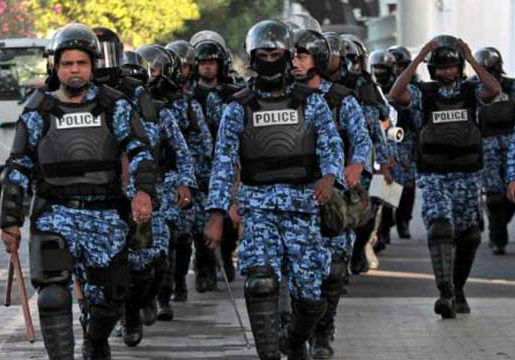The government of Maldives must immediately revoke its suspension of human rights protections under the state of emergency declared today and restore the rule of law to the country, said the ICJ.
The Maldivian government suspended a range of constitutional protections under a 30-day state of emergency declared on 4 November, citing a threat to national security based on the allegation that “some groups are planning to use … dangerous weapons and explosives,” according to a translated version of the emergency decree obtained by the ICJ.
“The complete suspension of constitutional protections for human rights such as the right to liberty and right to free assembly goes far beyond anything that could be justified by the alleged grounds cited by the government,” said Nikhil Narayan, ICJ’s South Asia Senior Legal Adviser.
“International law strictly regulates attempts by governments to suspend or otherwise derogate from human rights on the grounds of emergency,” he added.
Article 4 of the International Covenant on Civil and Political Rights (ICCPR), to which the Maldives is a State Party, expressly permits derogations only for certain human rights, and then only ‘in time of public emergency which threatens the life of the nation’.
“Maldivian authorities have not come close to explaining how the current situation constitutes a threat to the ‘life of the nation’, the high threshold set by international law for the derogation of rights in times of emergency,” Narayan said.
According to the emergency decree, the constitutionally protected rights that have been suspended during the state of emergency are, among others:
- Article 19: “A citizen is free to engage in any conduct or activity that is not expressly prohibited by Islamic Shari’ah or by law. No control or restraint may be exercised against any person unless it is expressly authorised by law.”
- Article 24: “Everyone has the right to respect for his private and family life, his home and his private communications. Every person must respect these rights with respect to others.”
- Article 31: “Every person employed in the Maldives and all other workers have the freedom to stop work and to strike in order to protest.”
- Article 32: “Everyone has the right to freedom of peaceful assembly without prior permission of the state.”
- Article 41(a): “Every citizen has the freedom to enter, remain in and leave the Maldives, and to travel within the Maldives.”
- Article 45: “Everyone has the right not to be arbitrarily detained, arrested or imprisoned except as provided by law enacted by the People’s Majlis in accordance with Article 16 of this Constitution.”
- Article 47(a) and (b): “(a) No person shall be subject to search or seizure unless there is reasonable cause. (b) Residential property shall be inviolable and shall not be entered without the consent of the resident, except to prevent immediate and serious harm to life or property, or under the express authorisation of an order of the Court.”
“The basic prohibition against arbitrary detention and imprisonment can never be derogated from,” Narayan said.
The declaration of the state of emergency also seems to target the country’s vice president, whom the president appears to regard as a political threat. The vice president is facing impeachment proceedings for his alleged role in the boat explosion which the government claims was caused by a bomb as part of a deliberate assassination attempt.
The emergency decree reduces the period provided under Article 100 of the Maldives Constitution for the vice president to respond to the impeachment charges from 14 days to 7 days.
“There seems to be a clear political motive in arbitrarily reducing the vice president’s procedural rights in the impeachment process,” added Narayan.
Additional information
The alleged threat cited by the Maldivian government refers to the announcement that Maldivian security forces had discovered weapons and explosives in two areas, and that some additional weapons were missing.
These allegations followed the purported discovery of an explosive device near the president’s palace on Monday that, following closely on last month’s explosion on a boat carrying the president and his wife, the government claims is part of an alleged assassination attempt on the president.
The government rejected the findings of an FBI investigation into the earlier boat explosion which ruled out the possibility that it was caused by a bomb.
In August 2015, following a joint fact-finding mission to the Maldives, the ICJ and South Asians for Human Rights (SAHR) documented the breakdown of the rule of law and human rights in the Maldives in a 35-page report, Justice Adrift: Rule of Law and the Political Crisis in the Maldives.
Contact:
Nikhil Narayan, ICJ Senior Legal Adviser for South Asia, t: +977 9813187821 ; e: nikhil.narayan(a)icj.org




